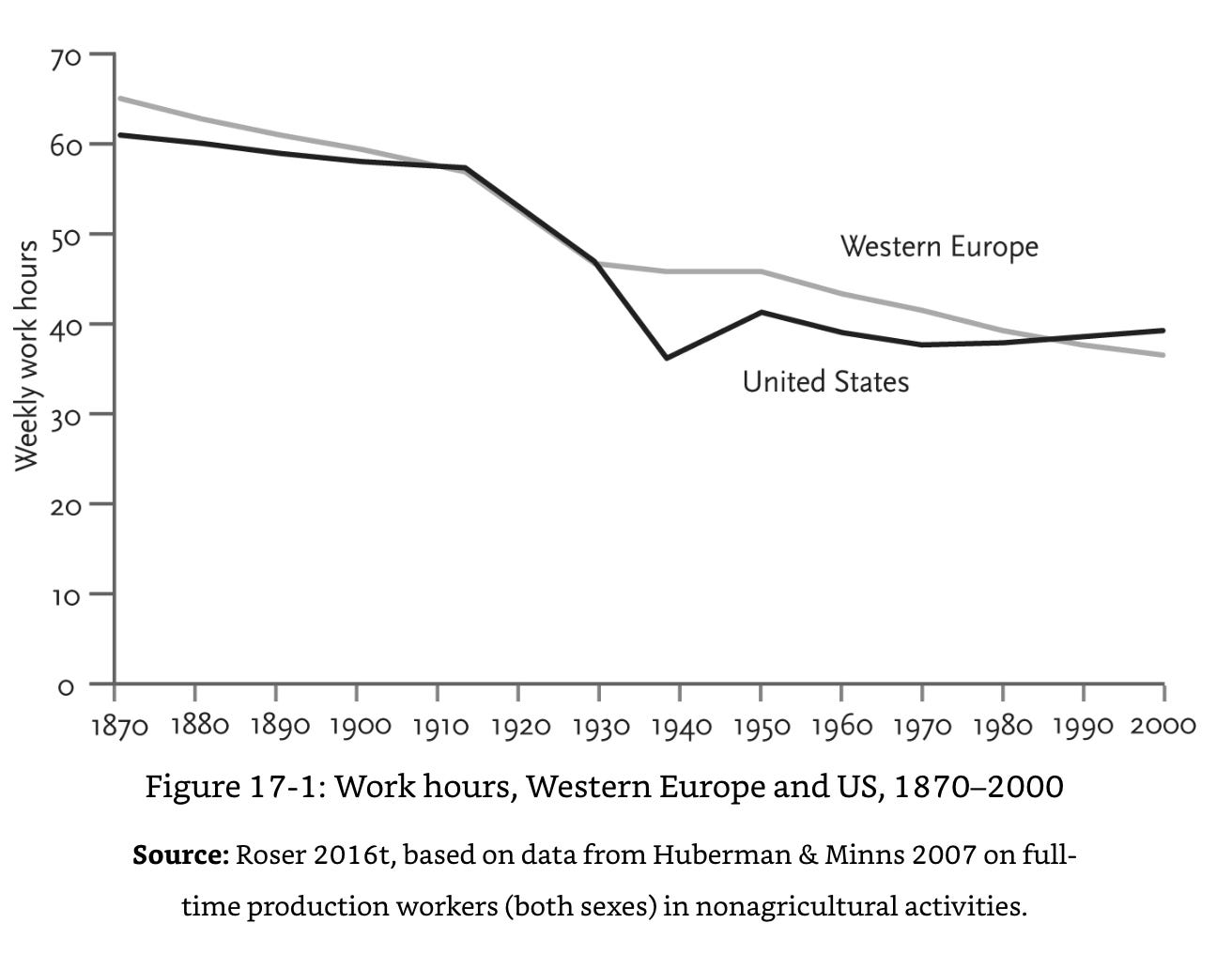The fraction of a person’s life taken up by work in the UK…
…has fallen by 25% since 1960
One of the more common reactions from people when I tell them about this column is an initial acceptance of the health, wealth and peacefulness developments that we have achieve, but then moving on to the more difficult question of ‘are we actually happier’? What good is all this extra life, freedom, education and security if people spend it working, staring at their phones and arguing on social media? It’s easy to look back at a golden age of the past (a phone-free photo of a 90s rock concert for example), and compare it to the current era, showing how much worse our lives are despite all the improvements in living standards.
So let’s look at the question of well-being, and try and extract the reality behind the nostalgia goggles. First, work. It might feel we are all working harder than ever, but that really is not the case. Work hours are down, in the west in particular, over the last century. Due to earlier retirement (see below), stronger laws regarding working hours and increasing holiday, we’ve essentially gained about one day a week in leisure time in the last 60 years.
Retirement is a fairly recent invention - for almost all of human history, if you were alive, you were working. Hunter gatherers may only have spent a few hours a day gathering their food, but they spent many more preparing it, carrying firewood and water and other chores. The recent past wasn’t much better - as you can see from the top graph, in 1870 most people worked 60+ hour weeks, and these were largely uncreative, often back-breaking farming or factory-based jobs.
So the next time you feel your 9 to 5 is killing you, take a moment to consider the amount and nature of the work you would be doing if you were born at any other time in human history.
Source: Enlightenment Now, Stephen Pinker
Data for the title claim calculation by Jesse Ausubel, graphed at http://www.humanpro-gress.org/static/3261.



